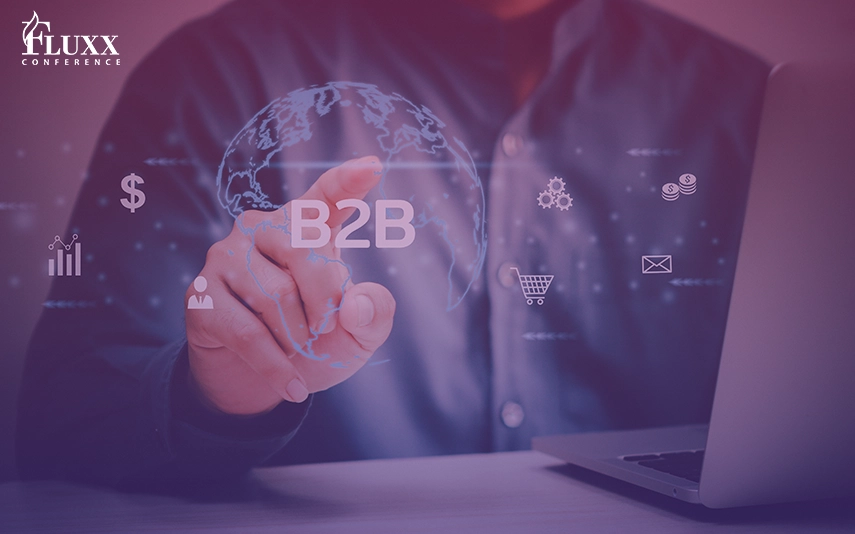
From Selfies to Boardrooms: The B2B Influencer Evolution
When someone says “influencer,” the image that comes to mind is often a sun-drenched selfie, a sponsored latte, or a trending Instagram dance. But in 2025, the influencer space is seeing a powerful transformation—one that goes beyond filters and hashtags. Welcome to the era of B2B influencers.
These are not your typical Instagram influencers. They are thought leaders, subject-matter experts, and go-to professionals who are shaping industry conversation. B2B influencers are transforming the way companies’ market, connect, and sell—because in business, credibility is currency.
What Makes B2B Influencers Unique?
When it comes to consumer marketing, influencers tend to bet on style and likability. In B2B, insight, trust, and authority come first.
B2B influencers are expertly knowledgeable in their area—SaaS, finance, healthcare, cybersecurity, or logistics. They present at conferences, write whitepapers, and consult to high- level organizations. Their followers follow them not for entertainment, but for education and insight.
These influencers don’t sell skin care routines—they drive purchase decisions in enterprise software, compliance software, and financial products. They won’t get passed around insta, but they create hard ROI.
Why the Change? Trust Drives Today’s B2B Buying Behaviors
B2B buyers have evolved. The decision-makers today—a CTO looking for a new data solution or a VP of marketing researching automation platforms—will not be swayed by ads alone. They trust recommendations from their peers, expert reviews, and real-world implementations.
More than 70% of B2B buyers are more likely to trust industry influencers than brand messaging. This shift has created rich soil for a different kind of marketing model—one where trust is farmed out to credible professionals who aren’t employees of the brand.
The Power of Micro-Influencers in B2B
Not all B2B influencers have millions of fans—and that’s okay. Micro and nano influencers (with 1,000 to 50,000 fans) have higher engagement levels and niche expertise. They focus on a very narrow topic area—cloud-based ERP for manufacturing firms, say.
With these influencers, B2B companies get access to super-targeted markets that are actively purchasing. It’s precision marketing at its finest.
Case in point: Impressive-low campaigns that work
Here is an example: when a security firm had to promote its new danger intelligence platform, it did not go with attractive advertisements. It participated with renowned security experts and white-hat hackers. They did live demonstrations, created LinkedIn tutorials, and wrote whitepapers under their bylines.
The result? A 38% increase in qualified leads and a 5x return on influencer investment.
Another example had a tech company collaborate with highly regarded marketing professors to break down AI-driven campaign tools through webinars. Their credibility created higher demo signups and greater user adoption.
Develop your B2B impressive strategy
Want to add impressive marketing to your B2B arsenal? Here are some major suggestions:
Install clear goals: Do you need lead genes, brand awareness, or product education? Your KPI will determine your impressive selection and campaign strategy.
Choose the correct impressive: Do not pursue follower counts – look for domain expertise, engagement quality and alignment of values with your brand.
Attach with influential people, don’t manage them: The best material comes from authentic voices. Keeping your message unchanged, let the affected people speak in their voice.
Integrate Across Channels: Mix impressive materials with paid media, email campaigns and webinars to make maximum effects.
Measure, repetition, repeat: Track it – CTR, conversion of leads, engagement and emotion. Use data to improve your impressive marketing playbook.
The Future: B2B Influencers as Strategic Assets
B2B influencers are no longer just brand mouthpieces—they’re becoming strategic partners in everything from product development to event co-hosting. We’re seeing CMOs collaborate with influencers to build communities, host summits, and even shape future offerings.
As automation and AI do more and more, human touch and genuine intelligence will become more precious. And that’s exactly what B2B influencers provide—relevance, trust, and connection in a noisier world.
Conclusion
The skin tone and selfie era has passed. In its place is a new type of influence built on credibility, insight, and professional respect.
B2B influencers are not a trend, but a strategic shift in the way companies do business today with decision-makers. And those embracing it today will own tomorrow’s marketplace.
Interesting Reads:
Digital Health Diplomacy: Innovation Reshaping Global Healthcare Ties
Quiet Power: Why Passive Talent is Your Business’s Hidden Strength





Comments (3)
最佳binance推薦碼 January,12 2026
Can you be more specific about the content of your enticle? After reading it, I still have some doubts. Hope you can help me. https://accounts.binance.info/es/register-person?ref=RQUR4BEO
www.binance.com注册 January,18 2026
Your point of view caught my eye and was very interesting. Thanks. I have a question for you. https://www.binance.com/register?ref=IHJUI7TF
prostafense official January,31 2026
**prostafense official**
ProstAfense is a premium, doctor-crafted supplement formulated to maintain optimal prostate function, enhance urinary performance, and support overall male wellness.